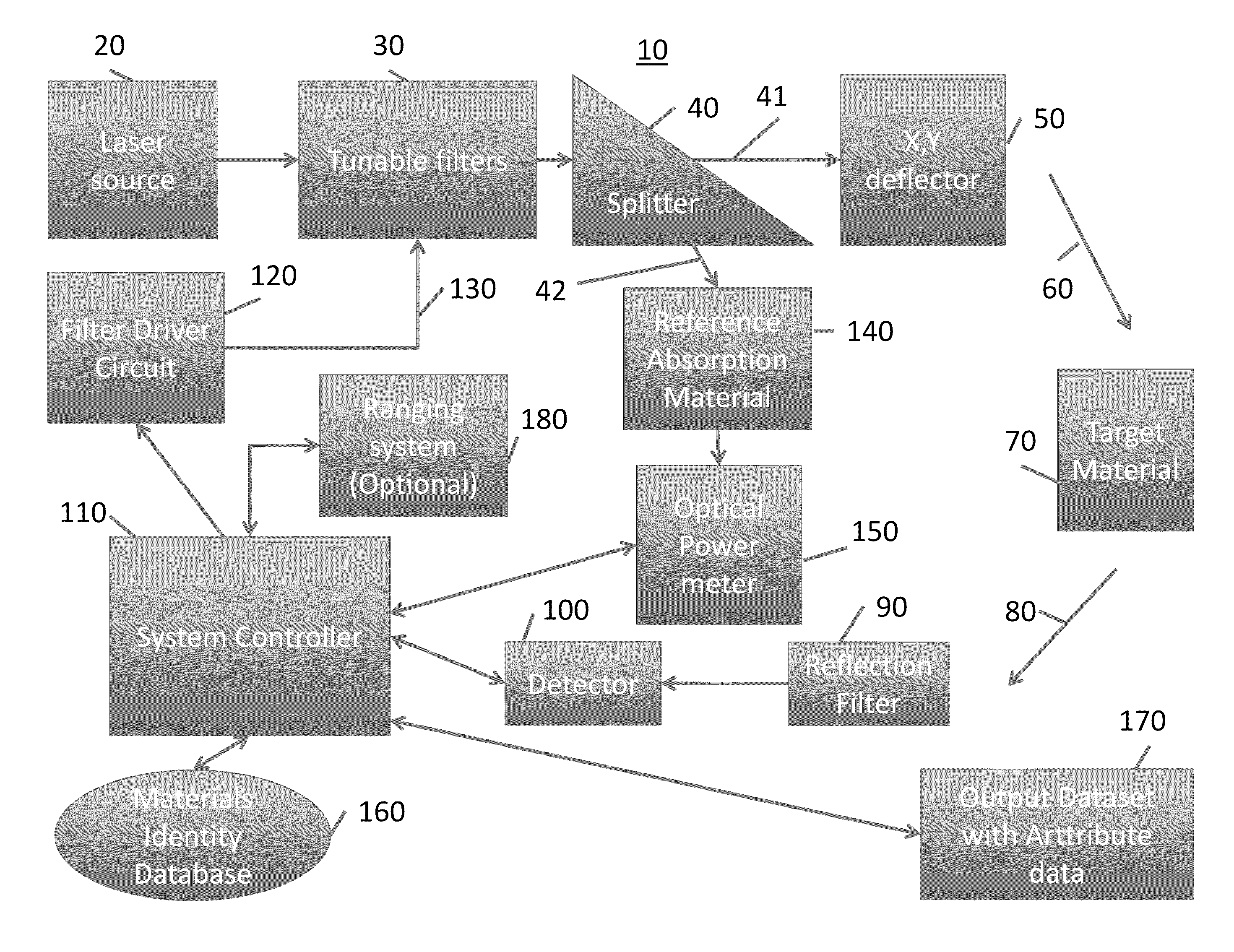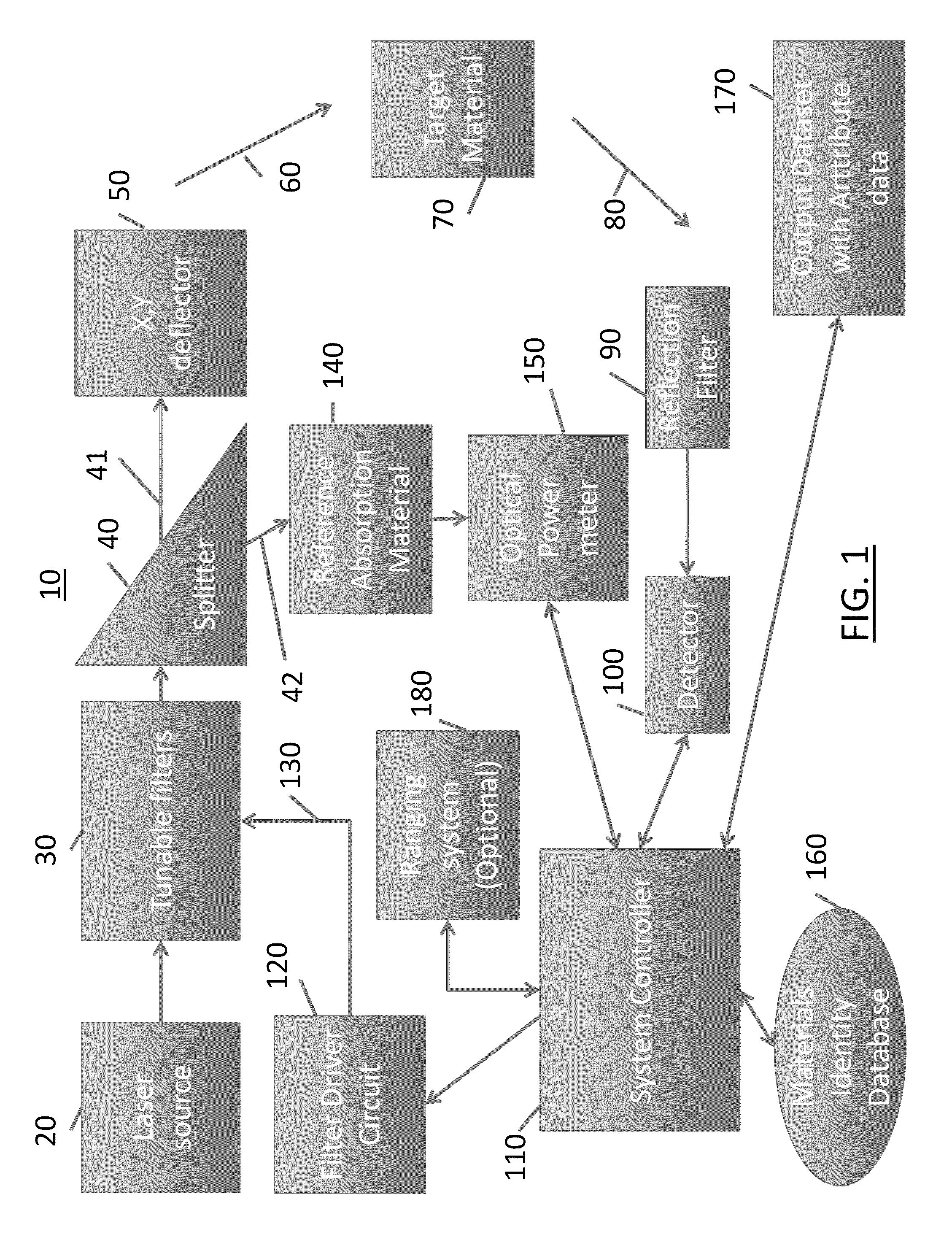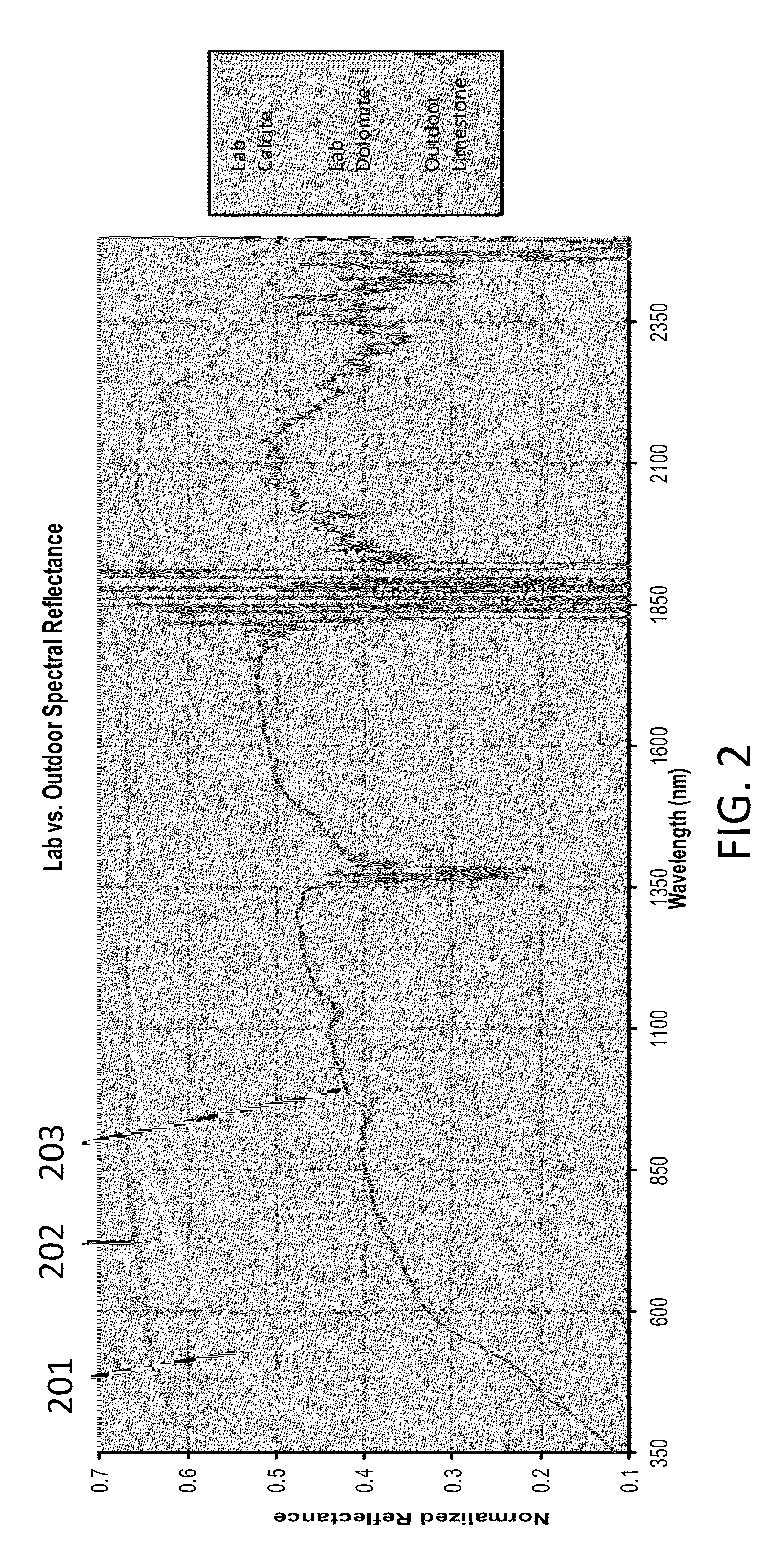System and method for interrogation of target material in situ
a target material and remote sensing technology, applied in the field of system and method for remotely sensing a target material in situ, can solve the problems of reducing the value of spectral image analysis of passively collected data, unable to identify the chemical composition of the target material, and unable to use a single frequency lidar instrument, etc., to achieve the effect of maximizing spectral and spatial sampling, reducing post-processing time, and rapid adaptation of parameters
- Summary
- Abstract
- Description
- Claims
- Application Information
AI Technical Summary
Benefits of technology
Problems solved by technology
Method used
Image
Examples
Embodiment Construction
[0018]Embodiments of the present invention for in situ interrogation of target materials are now described with reference to the appended drawings. The invention can be practiced as any one of or combination of hardware and software, including but not limited to a system (including a computer processor), a method (including a computer implemented method), an apparatus, an arrangement, a computer readable medium, a computer program product, a graphical user interface, a web portal, or a data structure tangibly fixed in a computer readable memory. An article of manufacture for use with a computer processor, such as a CD, pre-recorded disk or computer program storage medium having program code residing therein, also falls within the spirit and scope of the present invention.
[0019]Applications of the present invention include but are not limited to the acquisition of physical shape and chemical composition of target material from a remote location without the need for physical contact o...
PUM
| Property | Measurement | Unit |
|---|---|---|
| wavelengths | aaaaa | aaaaa |
| stand-off distance | aaaaa | aaaaa |
| swept-frequency | aaaaa | aaaaa |
Abstract
Description
Claims
Application Information
 Login to View More
Login to View More - R&D
- Intellectual Property
- Life Sciences
- Materials
- Tech Scout
- Unparalleled Data Quality
- Higher Quality Content
- 60% Fewer Hallucinations
Browse by: Latest US Patents, China's latest patents, Technical Efficacy Thesaurus, Application Domain, Technology Topic, Popular Technical Reports.
© 2025 PatSnap. All rights reserved.Legal|Privacy policy|Modern Slavery Act Transparency Statement|Sitemap|About US| Contact US: help@patsnap.com



